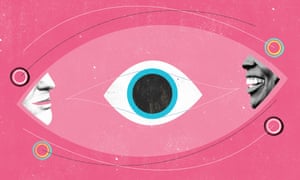As bacteria build fortresses, scientists seek weak points for attacks
via Boing Boing by Andrea James

Bacteria are extremely adept at building biofilm cities, often in places humans don't want them: catheters, sewer lines, and our teeth, to name a few. Now scientists are working to unlock the structural mysteries in order to eradicate unwanted bacterial buildup.
Continue reading
==============================
Bacteria Use Brainlike Bursts of Electricity to Communicate
via 3 Quarks Daily: Gabriel Popkin in
Quanta
 Olena Shmahalo/ Quanta Magazine
Olena Shmahalo/ Quanta Magazine
Bacteria have an unfortunate – and inaccurate – public image as isolated cells twiddling about on microscope slides. The more that scientists learn about bacteria, however, the more they see that this hermit-like reputation is deeply misleading, like trying to understand human behavior without referring to cities, laws or speech. “People were treating bacteria as … solitary organisms that live by themselves,” said Gürol Süel, a biophysicist at the University of California, San Diego. “In fact, most bacteria in nature appear to reside in very dense communities.”
Continue reading
==============================
The psilocybin in magic mushrooms is an insect repellant
via Boing Boing by David Pescovitz

The psilocybin in magic mushrooms is a potent psychedelic for animals. But what good is the psilocybin for the shrooms? New genetic research from Ohio State University suggests that the psilocybin might act as an insect repellant, protecting the mushrooms.
Continue reading
==============================
The Origin Story of Animals Is a Song of Ice and Fire
via 3 Quarks Daily: Ed Yong in
The Atlantic

Around 717 million years ago, the Earth turned into a snowball. Most of the ocean, if not all of it, was frozen at its surface. The land, which was aggregated into one big supercontinent, was also covered in mile-thick ice. And then, everything changed. Volcanoes released enough carbon dioxide into the atmosphere to trap the sun’s heat and trigger global warming. The ice melted, and the surface of the sea reached temperatures of 120 to 140 degrees Fahrenheit. By 659 million years ago, the world had transformed from snowball to greenhouse. And just 14 million years later, the ice returned and the planet became a snowball for the second time.
This song of ice and fire was a momentous period for life on Earth. According to Jochen Brocks from the Australian National University, it liberated a flood of nutrients that permanently transformed the oceans, from a world that was dominated by bacteria to one where algae were ascendant. The algae, in turn, revolutionized the food webs in the sea, paving the way for the evolution of larger and increasingly complex organisms – like the first animals. If the Age of Algae had never dawned, we wouldn’t be here.
Continue reading
==============================
Hitchcock and Shakespeare
via the OUP Blog by Sidney Gottlieb
 Portrait of Alfred Hitchcock. Prefeitura de Belo Horizonte, Public Domain via flickr.
Portrait of Alfred Hitchcock. Prefeitura de Belo Horizonte, Public Domain via flickr.
There are two adjectives we commonly use when discussing artists and artistic things that we feel deserve serious attention and appreciation: Shakespearean and Hitchcockian. These two terms actually have quite a bit in common, not only in how and why they are used but also in what they specifically refer to, and closely examining the ways in which Hitchcock is Shakespearean can be very revealing. My aim in adopting this perspective is more analytical than honorific: we could rest easy by simply repeating the frequent description of Hitchcock as “our modern Shakespeare,” but let’s be restless and think more deeply about some of the details that make this more than merely a convenient (and for some, a problematic) statement of high praise.
Continue reading
==============================
Degas’s Model Tells All
via 3 Quarks Daily: Jeff Nagy in
the Paris Review
 EDGAR DEGAS, SULKING, CA. 1870, OIL ON CANVAS.
Chrissakes, Pauline!
EDGAR DEGAS, SULKING, CA. 1870, OIL ON CANVAS.
Chrissakes, Pauline! No one would have been more horrified than Edgar Degas at the thought of a model taking up the pen. Not a fan of working-class literacy in general, he might well have died of apoplexy at the very idea that a model might dare not only to write about art but about his art. And from the very first words, we know that Alice Michel’s memoir is not going to be a typical hagiography of a great dead artist. This Degas is not the elegant gentleman, proud member of the Parisian haute bourgeoisie and scion of a well-to-do and diasporic family, with branches running banks in Naples and plantations in New Orleans. Nor is he the grand habitué of ballets, café concerts, and the opera, haunting the loges alongside his one-time friend librettist Ludovic Halévy. Not the cultivated disciple of Mallarmé who tried his hand at the occasional sonnet, not the obsessive aesthete who co-organized the exhibitions that made Impressionism an art-world phenomenon, and certainly not the purveyor of cutting, perfectly formed witticisms at exhibitions and dinner parties.
Continue reading
==============================
Traces of 6,000-year-old wine discovered in Sicilian cave
via the
Guardian by Lorenzo Tondo in Palermo
 A vineyard near Mt Etna, Sicily.
A vineyard near Mt Etna, Sicily.
Winemaking may have begun on the island more than 6,000 years ago.
Researchers have discovered traces of what could be the world’s oldest wine at the bottom of terracotta jars in a cave in Sicily, showing that the fermented drink was being made and consumed in Italy more than 6,000 years ago.
Previously scientists had believed winemaking developed in Italy around 1200 BC, but the find by a team from the University of South Florida pushes that date back by at least three millennia.
“Unlike earlier discoveries that were limited to vines and so showed only that grapes were being grown, our work has resulted in the identification of a wine residue,” said Davide Tanasi, the archeologist who led the research.
“That obviously involves not just the practice of viticulture but the production of actual wine – and during a much earlier period,” Tanasi said.
Continue reading
==============================
Eubulides and his paradoxes
via the OUP Blog by Graham Priest
 Plato’s Symposium by Anselm Feuerbach from Google Cultural Institute.
Plato’s Symposium by Anselm Feuerbach from Google Cultural Institute.
Public domain via Wikimedia Commons.
Who was the greatest paradoxer in Ancient Western Philosophy? If one were to ask this question of a person who knows something of the history of logic and philosophy, they would probably say Zeno of Elea (c. 490-460 BCE). (If one were to ask the same question about Ancient Eastern Philosophy, the person might well say Hui Shi (c. 370-310 BCE). However, my story here is about the Western side of the Euphrates.)
According to Plato in the Parmenides, Zeno wrote a book in defence of Parmenides, containing many paradoxical arguments. Sadly, most of these paradoxes have not survived, with one notable exception: the famous paradoxes of motion, reported to us by Aristotle. With arguments such as Achilles and the Tortoise, and the Arrow, Zeno argued that motion was impossible. Zeno’s arguments have been much discussed through the history of Western philosophy, and – arguably – were finally laid to rest thanks to developments in mathematics in the 19th Century.
Continue reading
==============================
You’ll Never Guess What a Supermassive Black Hole’s Favorite Food Is
via Big Think by Philip Perry
Cosmic jellyfish might sound like the name of a really bad cover band, but in reality, these are galaxies whose tentacles of stars, gases, and cosmic dust stream forth from their central, galactic discs. They certainly aren’t alone. Curiosities and strange wonders abound in our vast, prodigious universe. Both professional and amateur astronomers alike have hollered “Eureka!” at such things as voorwerps, magnetars, blitzars, and “green peas”.
Continue reading
==============================
Intricately layered laser-cut plywood sculptures
via Boing Boing by Andrea James

These amazing plywood art pieces are created in a small work area by Gabriel Schama and his laser cutter Elsie. His work really took off after a successful Kickstarter a few years ago.
Continue reading





























